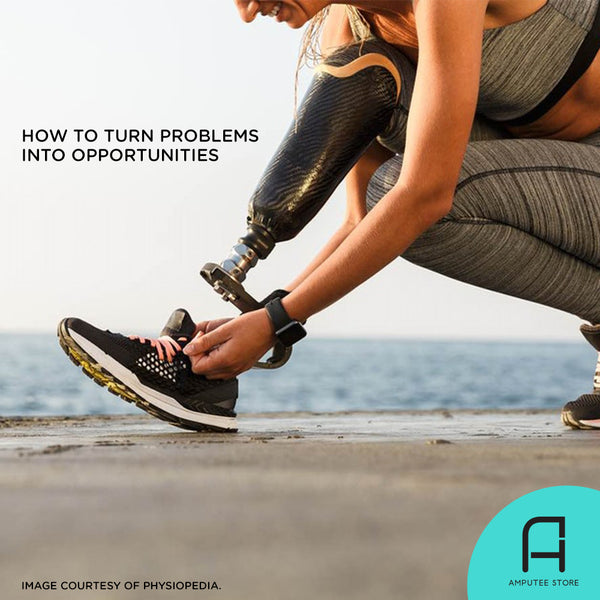How to Turn Problems Into Opportunities
Thanks to our ingrained negativity bias, we tend to feel the impact of negative events more than positive ones. However, when you talk to any adaptive athlete or successful entrepreneur, you’ll notice that they view challenges differently. They see problems as opportunities to learn and improve.

This mindset has many benefits. First, it reduces the burden of stress. Second, it allows the mind to break down and analyze the issue better, thus encouraging better problem solving. Third, it helps you improve continuously. And finally, the more you use this skill, the easier you handle future problems.
Unfortunately, adopting this mindset does not happen overnight. You cannot will it into your reality. If you want to live by this mindset, you’ll have to invest the time and effort over an extended period to see the results. Below are some tactics you can use to help you with this positive mindset shift.
Accept that problems are inevitable
The first step to adopting this mindset is to accept that problems are a part of life. We react negatively to issues because they take us by surprise.
You may be going about your day when your prosthetic socket feels uncomfortable. You may have felt some discomfort in the past few weeks, but none as unbearable as today. This incident can even make you think that your day is ruined.
However, your prosthesis almost always has some kind of problem; it’s usually so small that you don’t notice.
Problems are inevitable in life, and they only vary in intensity. If you can learn to accept challenges as completely unavoidable parts of life, you’ll have taken your first step toward handling them with more grace.
Watch out for knee-jerk reactions
Our first response to new situations defines our reactions. If you want to start seeing problems as opportunities, you need to rein in your knee-jerk reactions, which is easier said than done.
Let’s go back to the uncomfortable socket situation above. Your initial reaction might be “Now I have to waste time making a prosthetic appointment.” This involuntary response immediately paints the problem in a negative light.
A technique that can help you deal with knee-jerk reactions is to focus on the problem itself, not how you initially feel. In this case, the problem is that you have an issue with your current socket.
It’s vital to practice this method on small-scale problems first, for instance, when you accidentally spill your coffee cup. The more you use it, the better your reaction when you deal with large-scale issues.
Keep in mind that you’re going to work against nature on this one. When confronted with urgent situations, it’s our instinct to react negatively immediately. You’re going to need a lot of practice and presence of mind.
Remove yourself from the problem
We often have a highly self-centered view of the world, which is why it’s easy for us to think of how a problem could affect us. Once you get your initial responses under control, you can focus on distancing yourself from the issue.
One effective tactic is to describe the problem as though it was happening to someone else. “James has a problematic prosthetic socket. He needs to sit down and assess how he can fix it or call his prosthetist to set an appointment.
Thinking about a problem as something unrelated to you allows you to do a better job of keeping your emotions down and thinking objectively.
Focus on improvements
Lastly, you need to start thinking of your response to any issue as an opportunity for improvement that will benefit your future self.
In the socket situation, a direct reaction is to go to your prosthetist to get your socket checked. However, we encourage you to consider future improvements. Perhaps you can discuss a better residual limb volume management strategy with your prosthetist, consider using different components in the future, or implement a skincare regimen to ensure future prosthetic comfort.
Over time, you’ll see problems in terms of the potential improvements they present, instead of the actions they demand at the moment.
You’re always going to have problems in life. Don’t let stress blow up a neutral issue. If you train your mind to view these problems as opportunities for growth, you’ll become far more adept at handling them efficiently and with less stress.









































































